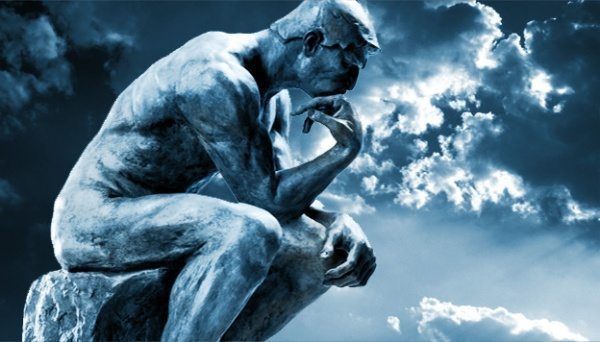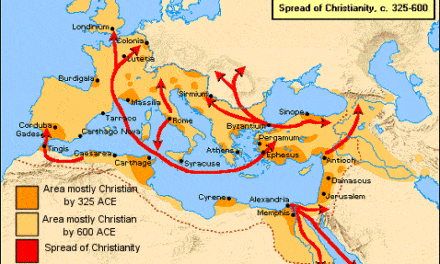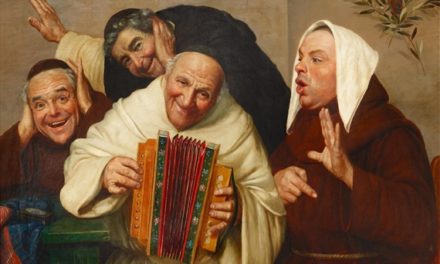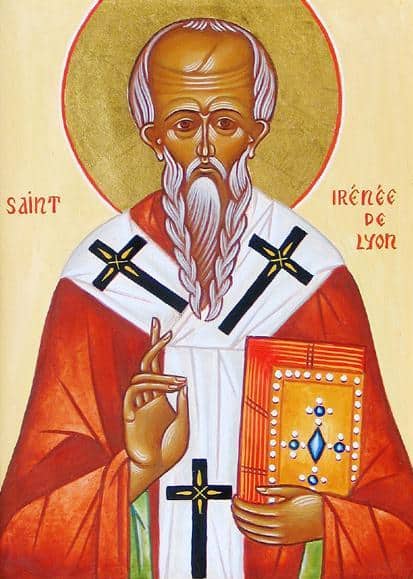The title of this episode is, The Rationalist Option Part 1.
I want to give a brief comment at the outset that this episode doesn’t track much of church history per se. What we do over the next minutes is take a brief look at the European Enlightenment. We need to because the ideas that came out of the Enlightenment influenced theology and the modern world.
The 30 Years War ended in 1648 with the Peace of Westphalia. But decades of bitter conflict left Europe a ravaged land. People were weary of conflict whatever its nature; political, religious, or martial. And though the War was over, the following decades were by no means peaceful. Among other things, they witnessed the English Civil War with its execution of Charles I, and yet more wars between European powers, albeit on a smaller scale. Against this turmoil-laden backdrop, a new spirit was brewing in Europe: one desperate to make a break with the past with its religious tension, dry scholasticism, incessant bickering and the numerous occult fetishes the Renaissance spun off. By the mid-17th C, the seeds of the Enlightenment were well sown.
A new breed of thinkers inhabited a Continent quite different from their ancestors. At the dawn of the 16th C Europe was dominated by the resolute Catholic power of Spain. In 1492, Spain both ended the lingering presence of Islam and discovered the New World. Italy, while having little political power, exercised massive cultural influence due to its claim as the birthplace of the Renaissance.
Fifty years later, everything had changed. Spain was exhausted by the 30 Years War and political hegemony had moved to France, finally free of the threat of its powerful neighbors, Spain and Germany. The Netherlands, previously under Spanish rule, won their freedom with the Treaty of Westphalia and almost overnight became the world’s leading trade nation. Amsterdam was the exchange capital of the world, and the Dutch merchant fleet was the largest on the planet.
The threat once posed by Islam was uprooted. Though Constantinople fell to the Ottomans in 1453, 40 years later saw the Spanish remove the last Muslim strongholds from the Iberian Peninsula. In 1683, despite being outnumbered five to one, the Polish king Sobieski routed the Ottomans besieging Vienna.
Europe was a land of independent nations: of trade and colonialism, and a rising middle-class. Instead of the hegemonies of the past, when a single power, whether emperor or pope, sought to govern the Continent, a new idea arose of a ‘balance of power’ between states—and between churches too. The Pope’s hand was declawed, even in Catholic countries, by the Treaty of Westphalia, which permitted every state to follow whatever religion it saw fit. Although France, the new dominant force in Europe, was mostly Catholic, it tended not to listen too closely to Rome. The Netherlands were strict Calvinists. It was a world in which the notions of nationhood, human rights, and law were going to play an increasingly important role, and they were going to be rethought along rationalist rather than religious lines.
The most vaunted ideal of the Age of Reason was Reason itself: the human capacity, by means of investigation, rather than by relying on external authority, to, in a word = Understand. In the first half of the 17th C, two philosophers, the Englishman Thomas Hobbes and the Frenchman René Descartes pioneered a new way of understanding the world and the mind. Instead of the Neoplatonic world of the Renaissance, dominated by occult forces, where objects exerted mysterious ‘influences’ on each other, they sought to understand the world in mechanistic terms. The universe was conceived as a complicated system of levers, pulleys, and bearings. Given enough time and the proper intellectual tools, the cosmos was comprehensible to almost anyone who took the time to study it.
At the same time, there was a desire to forget the old divisions of the past and embrace what was common to all humanity. One important movement of the time we’ll talk about later was ‘syncretism’, which sought to reunite the churches of Europe. A leading figure in this was the Dutch Reformed thinker Hugo Grotius, who contended Christians of all denominations should come together on the basis of their common faith and heritage. Grotius was arrested in The Netherlands and spent some years in prison until he made a daring escape and fled the country.
Despite his work as a theologian, Grotius is most remembered as a legal theorist. His On the Law of Peace and War of 1625 was the first major study of the theory of international law. In it, he sought to place binding human laws—transcending national boundaries—on a naturalistic and rational footing. This vein of thought was the result of the application to philosophy and theology of the laissez-faire principles which nations like the Netherlands applied to economics with such remarkable success.
It took eighty years of on-and-off warfare before the Netherlands finally achieved its independence from Spain in 1648. The country had already become a great trading nation, and during the 17th C entered a golden age, quickly becoming one of the most powerful nations in Europe. Culture, the arts, and science flourished, with the works of the 17th C Dutch painters quickly becoming classics to rank alongside the best the Italian Renaissance had produced.
The Netherlands was (not “were” I looked it up. So, The Netherlands was – the premier bastion of the Reformed faith in Europe. It was there Calvinists who’d suffered persecution elsewhere, emigrated. Dutch theologians defined and refined their faith, a process that led to the Arminian controversy. And while the persecution of Arminians was carried out in the Netherlands, it was nothing compared to what the French and English were dishing out to their religious dissidents. The rule of merchants meant the Netherlands were renowned for tolerance—racial, philosophical, and national. It was to the Netherlands a substantial Jewish community, fleeing the persecutions of Philip II in Spain, had come. Charles II of England sought refuge there after his father’s execution. It was there, too, fringy-ish philosophers and theologians like Descartes and his disciple Spinoza, found sanctuary and carried on their work. In providing an environment in which their ideas could develop, free of interference, the wealthy mercantile ruling class of the Netherlands played a key role in the evolution of the Enlightenment in the 17th C.
If one person could have claimed to be the most powerful man in the world in the late 17th C, it would have to have been Louis XIV of France. The ‘Sun King’ of legend ascended to the throne at the age of four, in 1643. He remained there until his death in 1715. When Cardinal Mazarin, effectively the prime minister, died in 1661, the 23-year-old king decided not to appoint a successor to run the country and did it himself. Whether or not he really uttered the famous words, “I am the State,” under his personal rule, France was established as a leading force for culture and enlightenment. The magnificent palace of Versailles, completed in 1682 after twenty years of construction, symbolized the spirit of the age. It was an era of formalism, geometry, beauty, and intellect. And where France led, Europe followed. Fifty years earlier, scholars spoke Latin. Now, French became the language of scholarship.
At the same time, Louis did everything he could to extend France’s political power, which he achieved by means of an aggressive foreign policy. The wealth of the Netherlands, so close at hand, tempted him into a series of wars with the Dutch. In 1689, he plunged the world into a conflict that threatened a level of devastation not seen for a half-century. This was the War of the Grand Alliance, during which the fighting covered Europe, Ireland, and North America. Barely had that finished, in 1697, before Louis launched the War of the Spanish Succession of 1701–14, which left his grandson occupying the throne of Spain.
The age over which Louis presided was an avowedly Catholic one. His favored slogan was “One faith. One law. One king.” The Catholicism of France at that time was nationalistic, rather than a papal. People were devoted to the Church more because of the ancient roots of Catholicism in France than out of a sense of duty to Rome. This came to be called ‘Gallicanism.’ One of its leading proponents in the court of the Sun King was Jacques Bossuet [BOO-sway], the Catholic bishop of Meaux [Muh].
Despite the pacific influence of men like Bossuet, Louis XIV’s determination to unite his subjects under a single faith became heavily coercive. Of the roughly fifteen million inhabitants of France—the largest population of any European state—about a million were Protestants-Huguenots. Their freedom to worship was guaranteed by the Edict of Nantes of a half-century before Louis, but he saw to it that things were not easy for them. They suffered restrictions on where they could go, what professions they could take up, where they could worship, and what schools they could attend. In 1681, oppression became suppression, when the army was ordered to harass Huguenots until they converted. Four years later, the king revoked the Edict of Nantes.
Little wonder, then, that a growing number of French intellectuals began to think religion didn’t seem to offer much of a basis for an enlightened modern society. It wouldn’t be long before some questioned the point of religion altogether. In the meantime, many were impressed by their Dutch neighbors who’d worked out a far more satisfactory social philosophy of reason and liberalism.
England had a harder time than France. Politically, most of the 17th C was something of a disaster, involving civil war, a short-lived republic, the overthrow of two monarchs—a Revolution and the eventual coronation of the Dutch William of Orange as King of England; who was invited to invade by a Parliament desperate to secure a Protestant monarch.
As England finally established some political stability, it fostered major intellectual developments that would put the country on a cultural par with France. British thinkers pioneered new ideas about government, politics, ethics, and economics; ideas that aimed to avoid the extremes absolutist monarchs such as Charles I and despots like Cromwell had slipped into. While the nations of the Continent developed an ever-higher reverence for their monarchs, the political and military struggles of 17th C England saw an erosion of the monarchy. The idea took hold that kings rule by consent of the governed, who retain the ability to judge and even remove him if they don’t approve of his policies.
The process was started by Thomas Hobbes, who sought to create a new political theory that was rational and humanist, without any reliance on religion. In his famous Leviathan of 1651, Hobbes put forward the claim that government is based on natural law, not on divine sanction, and that a government exists only by the will of the people.
The appearance of modern ‘liberalism’, is associated above all with John Locke, one of the most prominent British intellectuals at the turn of the 18th C. Locke is most famous for his political ideas, and his values of tolerance and liberalism, which would have an enormous impact in both America and France. Like Hobbes before him, Locke was determined to develop a new understanding of how society and its members operate and interact. He was inspired in this by the advances in science over the preceding century—climaxing in the work of Isaac Newton, revered throughout England as a genius, a new Aristotle. If the exercise of cool mathematical reason could produce Newton’s Principia, regarded by many as the final word in the study of physics, who could say what it might produce in other spheres as well?
Locke’s attempts to do this in philosophy, psychology, politics, and religion resulted in his starting the English Enlightenment virtually single-handedly. Locke believed human reason should be the final arbiter of what we believe, in politics, ethics, and religion alike; and he believed the values of tolerance and individual liberty, of education and freedom, would provide the proper environment for the exercise of reason. This was the philosophy of the Enlightenment in a nutshell. Yet despite his enormous prestige at home, Locke’s influence was greatest in Continental Europe. French intellectuals were impressed by the commonsense political philosophy coming from across the Channel. Between them, Britain and France were responsible for the most characteristic trends and movements of the Enlightenment.
If Hobbes was the Enlightenment’s midwife and Locke birthed it, the man who epitomized its values and dreams was François Marie Arouet [Ah-roo-eh]; known by his pen name, Voltaire. He was the dominant cultural force of his day, and the smiling figure he presents in contemporary paintings, with a wicked glint in his eye, conveys the intellectual power, wit, and irreverence that characterized his version of the Enlightenment.
Born in 1694 in Paris, Voltaire was educated by the Jesuits and quickly became known for his satirical poetry and biting wit. His penchant for attacking the aristocracy saw him holed up in the Bastille for almost a year. That wasn’t enough to teach him what the authorities hope and in 1726, we was sent into exile. He spent three years in England learning the values of liberalism, rationalism, and religious tolerance. On his return to France in 1729, Voltaire set out to enlighten France by extolling the virtues of the British philosophers, above all Locke and Newton. In his Philosophical Letters of 1734, which he called ‘the first bomb against the Old Regime’, he compared France’s government, science, and philosophy unfavorably to England’s. And as might be expected, he was expelled once again from Paris. Voltaire headed for the French countryside, where he immersed himself in the study of the natural sciences. In 1749, at the invitation of Frederick the Great, he moved to Prussia for a few years. He eventually ended up in Switzerland, where he devoted himself to writing plays, essays, novels, and articles. His success was so great, and his influence so enormous, his estate became a place of pilgrimage to writers, philosophers, and the celebrities of the time. So popular was his home he became known as ‘the innkeeper of Europe’. In 1778, in order to direct one of his own plays, Voltaire returned to Paris to enormous acclaim and died shortly after.
Voltaire devoted his life and work to the principles of reason and tolerance that he saw exemplified in British philosophy. His slogan was ‘Crush infamy!’ and to Voltaire, the most infamous institution in France was the Roman Catholic Church, an organization which in his eyes demanded loyalty from its members, which forced on them a ridiculous and barbarous mythology, and which put down dissenters with the sword. Voltaire was not an irreligious man, and was one of the foremost proponents of ‘deism.’ Yet he was notorious as an arch-heretic and enemy of Christianity for the contempt with which he held what he regarded as the superstitious and authoritarian elements of the Faith. Voltaire attacked the doctrines and practices of Christianity as mercilessly as he lampooned the secular rulers of society.
There is a story that his local bishop once ordered that under no circumstances was Voltaire to be admitted to Mass. Voltaire, who had no intention of letting a mere bishop exercise authority over him, therefore faked a terminal illness and forced a priest to give him the sacrament, which could not be denied to a man on his deathbed. The moment he had consumed it, Voltaire jumped out of bed and went for a walk. The notion that one could eat God was as blasphemous to him as it was ludicrous, and mockery seemed to him the only appropriate response.
At the time of his death, Voltaire had produced some two thousand books and pamphlets. Probably the greatest was his Philosophical Dictionary of 1764, devoted primarily to ethical and religious subjects. The fact that this work was burnt throughout France showed that few in authority had heeded his Treatise on Tolerance of the previous year, in which Voltaire had condemned the atrocities that had been perpetrated throughout history in the name of religion and called for the freedom of each individual to practice whatever religion they chose.
Because Voltaire was such a towering figure, his celebrity tends to diminish the many others who shared his views, though with less aplomb. He was no iconoclast, no lone voice in the wilderness. On the contrary, while he may have been the loudest voice, it was accompanied by a chorus of French critics, writers, and philosophers, all of whom extolled reason and human progress and critical of the traditional authorities and mores. The first and most famous of these philosophes, as they were known, was Baron Montesquieu. His Persian Letters, published in 1721, took the form of a series of letters by two fictitious Persians traveling Europe. Montesquieu bitterly satirized the Establishment of his day: the French king, government, society and, above all, the Catholic Church, which Montesquieu hated for much the same reasons as Voltaire. However, Montesquieu’s attitude to Christianity softened over the years, and he was much more sympathetic to it in his most famous work, The Spirit of the Laws of 1748, which attempted to set out legal principles.
One philosophe who never moderated his views was Baron d’Holbach, another French aristocrat. D’Holbach wasn’t only an atheist, which was a much more daring position than the deism of Voltaire; he believed atheism was the only possible basis for a reasonable ethical system. Politically, he opposed all kinds of absolutism, including even the enlightened monarchies of the sort Louis XIV had tried. Here again, we see the influence of British thought. In his System of Nature of 1770, d’Holbach set forth a wholly materialistic and mechanistic understanding of the world. It’s hard to imagine a more different figure from Bossuet a century earlier: such was the radical turnaround, from supporting religion to undermining it, that the French Enlightenment had taken.
Next on our stop will be the German Enlightenment. But we’ll have to leave that for next time.





